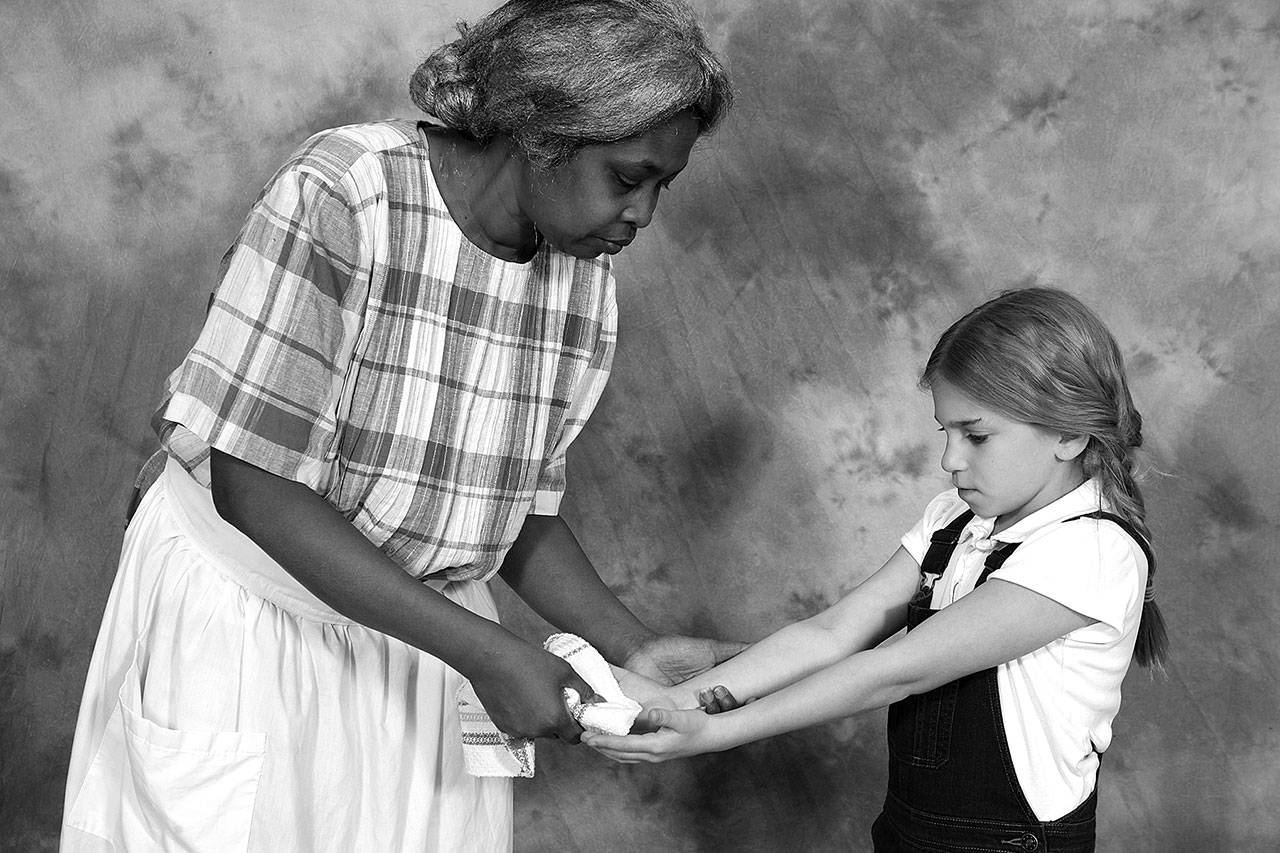Alicia Jones, an employee of The Daily Herald, talks about the demands of working a full-time job and being a cast member of “To Kill A Mockingbird,” now being produced by the Driftwood Players in Edmonds. The 63-year-old Everett resident also talks about the influences in her life, including growing up with parents who participated in the 1963 March on Washington.
Talk about your character, Calpurnia.
It’s the 1930s in Maycomb, Alabama. It’s a small town… Then lots of folks live out in the rural part and are poor. It’s the Depression, so everybody’s really poor.
Calpurnia is the cook and the babysitter for Atticus Finch, a lawyer. His wife died when Scout was a little baby. Calpurnia has been associated with the family for a long time. She took over mothering the kids (Scout and Jem), and is the cook and cleans.
How do you get into character?
I just kind of sit with it and meditate on it. Sometimes I get the image of slipping into the character like a costume. That’s what works for me. Just playing the scenes over and over in my head.
It wasn’t hard to get into that role. I always think about my aunts. They were from the South as well.
Did they stay in the South?
No, they were part of the Great Migration. I always remember my mom talking… It was always like this little mantra: “No kid of mine is going to the South.”
Talk more about your family.
We were a reading family. In junior high, I actually read Dostoevsky’s “Crime and Punishment.” It took about a year and a half to read it. I loved fairy tales. I read lots and lots of kinds of things.
My parents studied classical voice. I grew up on opera and my dad loved Eartha Kitt. My dad used to play records for me when I was still in the womb.
When did you first become acquainted with “To Kill A Mockingbird?”
I remember seeing the movie as a kid… I have a DVD of it. Anytime it came on TV, I would watch it. I love that film. I was thinking about this recently. I associated with Scout. I knew Jem (her brother) was there, but because I was a kid, it was Scout. That was me.
It was only probably 20 years ago that I read the book. And then, of course, doing the play is the first time I saw the play version.
Did the use of the “N word” in the play bother you?
That’s part of the times. That’s the language, and how people thought. You can’t PC it away. And if you’re trying to do that, you’re not dealing with that reality, or the current reality.
I have no problems with that. I like the honesty of it. And to keep it honest.
What’s your job at The Herald?
Media sales representative. Basically the person at the front desk. Talking to people is what I really like to do.
What was your major at the University of Washington?
Economics and psychology.
What was it like to have a full-time job and be a member of this cast?
It was like doing my job and then peeling out as close as I could to 5:30 or so, dashing home really quick, going to Starbucks and getting a salad, and then going to rehearsals.
We’ve had long nights. We have finished around 10:30 or 11. You start rehearsals at 7 p.m. Then, for the actual performance of the play, the call to the stage is between 6:30 and 7.
I have a lot of energy. Sleep and get rest when you can. It’s like “OK, I’m doing this and this, and I can’t be doing other things.”
What’s the relevance of the play today?
I agree with the director of the play, Elizabeth Herbert. It’s so apropos. We still haven’t dealt with the issues of race. It’s still there.
What do you hope people take away from the play?
There was a study that talked to high school kids and younger about what they knew about slavery and the American Civil War and how few knew that the Civil War was fought over slavery.
That was a little shocking to me. My parents were in the March on Washington with Martin Luther King Jr. They were very much involved in the NAACP. As a kid, we lived in Philadelphia at the time. They used to have friends over. They were black and white and some Jewish, and I remember overhearing a bit of the conversations.
We need to really understand our history — everybody’s history — in the United States. To understand where we were, and in some ways still are, but where we need to move away from.
What’s the biggest joy of being in the play?
The whole process is fascinating. I love the whole cast. The kids are so much fun. The logistics of the whole thing. The cast is also moving the scenery around — the whole ballet of it. I’m enjoying the whole thing. It’s just the joy of stretching yourself.
Sharon Salyer: 425-339-3486 or salyer@heraldnet.com.
If you go
Edmonds Driftwood Players’ “To Kill A Mockingbird” is showing 8 p.m. Thursday through Saturday and 2 p.m. Sunday through Feb. 25 at the Wade James Theater, 950 Main St. in Edmonds. Tickets are $28 for adults and $25 for seniors, youth and the military. Call 425-774-9600 or go to www.edmondsdriftwoodplayers.org for more information.
Talk to us
> Give us your news tips.
> Send us a letter to the editor.
> More Herald contact information.

























